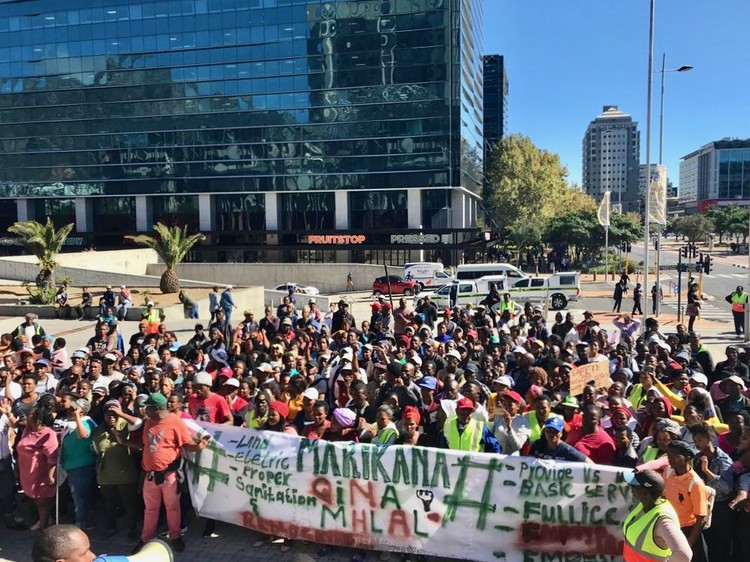Buy or expropriate the land, Marikana shack dwellers tell City
“In a big and beautiful city like Cape Town I don’t expect this kind of life”
About 100 residents of Marikana informal settlement protested outside the Cape Town Civic Centre on Wednesday morning.
They were demanding that the City of Cape Town buy or expropriate the land they have occupied in Philippi East since 2013. They want the City to stop its appeal against a 2017 Western Cape High Court order to purchase the private land.
The community has been battling for basic services because the City says it cannot develop private land.
Siwaphiwe Dolophu, a committee leader in ward 25, said, “We are demanding that the City and the co-applicants [Western Cape Province] withdraw the appeal and initiate the expropriation process.”
In a memorandum, residents said that they don’t have flush toilets, electricity, access to roads or adequate street lighting.
“We want the land on which we have made our homes to become government owned so we can receive full services. Our rights to dignity and equality are being infringed every day that we continue to live in these conditions,” read the memorandum.
Ernest Mayoli, who joined the protest, shares a shack with his wife and two children. He uses paraffin for lighting and cooking and has to walk some distance to fetch water or use a toilet.
“In a big and beautiful city like Cape Town I don’t expect this kind of life. Every year, the City of Cape Town puts aside money for recreational activities … A playing park is meaningless to a Marikana child. First priority should be access to toilets and safe water,” he said.
The memorandum, in which the protesters demand a response in five working days, was received by Mayco member for water and waste Xanthea Limberg.
Support independent journalism
Donate using Payfast

Next: Hundreds march in Cape Town for National Health Insurance
Previous: Protest after informal settlement flooded in Durban
© 2019 GroundUp.
This article is licensed under a Creative Commons Attribution-NoDerivatives 4.0 International License.
You may republish this article, so long as you credit the authors and GroundUp, and do not change the text. Please include a link back to the original article.

